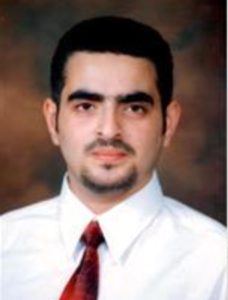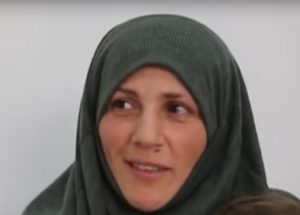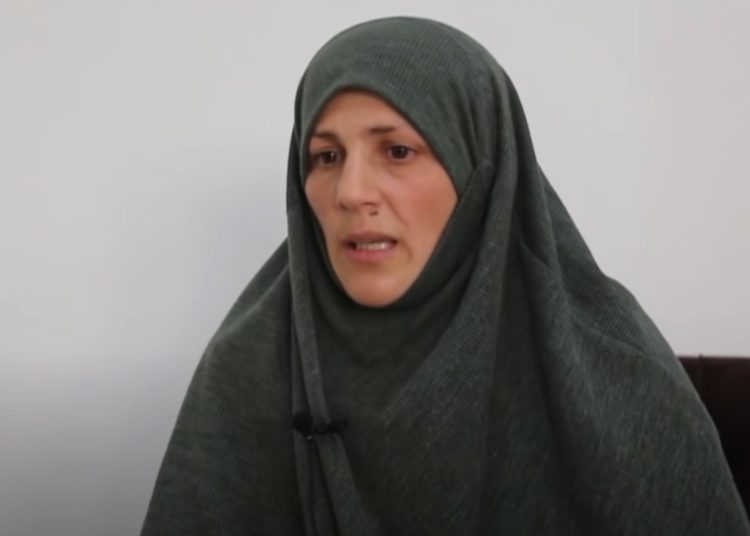Abdullah Bozkurt/Stockholm
A Turkish militant whose Jordanian husband killed seven CIA officers in a suicide attack in Afghanistan was allowed to travel to Syria to join the Islamic State in Iraq and Syria (ISIS) after a brief detention.
Defne Mohammad Abumallal (aka Defne Bayrak), the 43-year-old Turkish wife of al-Qaeda suicide bomber Humam Khalil Abu-Mulal al-Balawi, was allowed to cross the border into Syria in April 2015 after a few hours of detention by the police in the border province of Gaziantep. Turkish authorities knew she would join ISIS, yet did not prevent her passage to Syria.
The revelations confirm once again that Turkey knew who was going to Syria and for what purpose but looked the other way and in many cases facilitated their travel to ISIS and al-Qaeda-controlled territories in Syria instead of preventing aspiring jihadists from joining deadly terrorist groups.
According to a confidential Turkish government file dated November 2, 2021 and obtained by Nordic Monitor, Abumallal was the subject of a counterterrorism investigation at the time she was detained in 2015, but the public prosecutor’s office in the town of Salihli later decided to close the investigation into her. A year after she made it to Syria along with her two daughters and joined ISIS in Raqqah, the Istanbul Second Criminal Court of Peace issued an arrest warrant for her, a face-saving measure often used by Turkish authorities to have an excuse on hand if a person’s actions become a headache for the government.
No criminal case is pending against her in any court as of today despite the arrest warrant and a mention of her in a police bulletin as wanted.
Confidential Turkish government file about Defne Mohammad Abumallal was prepared on November 2, 2021:
Abumallal made the headlines in Turkey when her husband al-Balawi carried out a suicide attack in Afghanistan, killing himself, seven CIA officers and one Jordanian intelligence officer on December 30, 2009. He was recruited by the Jordanian General Intelligence Department (GID) in January 2009 when he was briefly detained and later hired by the CIA to track down Ayman al-Zawahiri, a fellow doctor from Egypt who was then Osama bin Laden’s right-hand man, and to infiltrate al-Qaeda leadership.
He travelled to Pakistan in March 2009, operated in Afghanistan’s border areas with Pakistan and befriended Baitullah Mehsud, chief of the Pakistani Taliban, as well as senior al-Qaeda leaders. He had provided valuable intelligence at the outset of his mission. However, he later turned out to be a loyal jihadist militant who deceived his CIA and Jordanian handlers and carried out a suicide attack during a meeting at a CIA facility inside Forward Operating Base Chapman near Khost, Afghanistan.
Abumallal met al-Balawi in Turkey in 2001 and married him while he was attending İstanbul University’s Çapa Medical School. When he first arrived in Turkey in 1995, al-Balawi lived in Ankara and attended an English language course for nine months. He went to Istanbul a year later when he was accepted to a medical school there. The couple moved to Jordan after al-Balawi earned his medical degree.
According to Turkish police records, both he and his Turkish wife were connected to people and foundations affiliated with the Islamic Great East Raiders Front (İslami Büyük Doğu Akıncıları Cephesi, IBDA-C), an outlawed terrorist group that subscribes to al-Qaeda ideology. The IBDA-C network enjoys political cover under the government of President Recep Tayyip Erdoğan, which secured the release of the group’s founder and late leader, Salih İzzet Erdiş, known by his adopted name Salih Mirzabeyoğlu, on July 22, 2014. Erdiş, a convicted felon, was serving a life sentence for terrorist acts when the Erdoğan government intervened on his behalf, securing a quick retrial and acquittal. Erdoğan welcomed his release.
Abumallal, who has two daughters, moved back to Turkey after her husband was killed in Afghanistan and has been under surveillance since then. After the suicide attack, Turkish police questioned her, on January 7, 2010, at the request of the Istanbul Public Prosecutor’s Office. In interviews with the press, she said she regarded her husband as a martyr in the holy war against the United States.

“I’m proud of him. He’s a great warrior. He carried out a great operation in this war. May God accept his martyrdom,” she told reporters. “My husband did this against the US invasion.” She also told reporters that her husband could not have worked for the CIA because he was “too hostile to the United States to do that.” But he could have used the United States and Jordan to further his interests, she added.
Not much is known about her background and how she became radicalized and what role al-Balawi played in her thinking. Abumallal had worked as a journalist in Turkey, starting with mainstream news media outlets including Hürriyet, today a pro-Erdoğan newspaper. Her elder sister was working for CNN International’s Turkish affiliate CNN Türk. Abumallal later moved to Islamist and jihadist outlets such as TimeTürk, Vakit (which publishes as Yeni Akit today), Küresel Haber, Inca News and Islamic State.
She also worked as an Arabic translator. While she was busy writing for Turkish jihadist websites, her husband was also posting his ideas in chat rooms on Jordanian jihadist websites. She is the author of a book titled “Osama bin Laden: Che Guevara of the East,” and had translated into Turkish an anti-American book by Saddam Hussein titled “Begone, Demons.”
In Syria, she wanted to put her journalistic skills to use for ISIS and drafted several proposals including writing a propaganda book about ISIS. But according to Abumallal, ISIS was very much a male-dominated group and cared nothing about her expertise. She married an Egyptian jihadist but was divorced 16 months later. In Tabqa, she married another jihadist, a Kurdish man from Turkey’s Kilis province. The marriage lasted only two months, but she has a son from the marriage.

When ISIS came under increased attacks in Syria by the US-led coalition forces and started losing territories it had once controlled, Abumallal wanted to return to Turkey but was captured by a Kurdish militia, the People’s Protection Units (YPG), in northern Syria as she was trying to cross the Turkish border. She is still in their custody, and Turkish authorities have made no attempt to bring her back to Turkey. In an interview she gave to the Fırat News Agency (ANF), affiliated with the outlawed Kurdistan Workers’ Party (PKK), she expressed her desire to be tried in a Turkish court rather than anywhere else.
The Turkish file on Abumallal shows that she has no pending criminal case registered with the National Judiciary Informatics System (UYAP), a government network that publishes court cases. On March 22, 2018 the police asked the Financial Crimes Investigation Board (MASAK) to investigate her assets on charges that she was a member of the ISIS terrorist group. A similar request was filed with MASAK on May 2, 2019. According to police records dated May 9, 2019, she was described as “ISIS member who was kidnapped by the PKK/KCK terrorist group and kept in a so-called prisoners camp.” The Kurdistan Communities Union (KCK) is an umbrella organization that includes the PKK.
Today, Abumallal wants to return to Turkey and hopes to be released without any punishment. She says she poses no threat to Turkey, saying that if she had wanted to, she could have conducted a jihadist operation after she returned from Jordan and lived in Turkey until she joined ISIS in Syria in 2015. That proves she poses no risk to Turkey, she claims.












